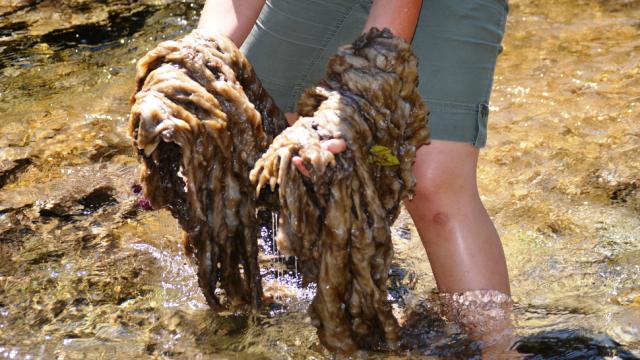Canada’s new, science-friendly Liberal government has set its federal researchers free. Now unmuzzled, some Canadian scientists are speaking out. Here’s a sampling of what it was like to do science under the Harper regime.
Under Prime Minister Stephen Harper, journalists had to go through extensive bureaucratic red tape to reach scientists, and even then, the information disclosed was severely constrained. Though the Conservatives never admitted it, the muzzling of Canadian scientists was likely an effort to protect government interests in the Alberta tar sands, and other areas where science might have served as a threat, like climate change for example.
Gov scientists/experts “will be able to speak freely about their work to the media and the public.” #cdnpoli pic.twitter.com/i6AJBw1XEu
— Andrea Woo | 鄔瑞楓 (@AndreaWoo) November 7, 2015
Now that these restrictions are gone, the Globe and Mail‘s Andrea Woo spoke to three Canadian scientists about work they couldn’t previously discuss.
Environment Canada scientist Max Bothwell, who studies Didymosphenia geminata (non-invasive gelatinous algal “blooms” known colloquially as “rock snot“), described the experience to Woo as “frustrating” and “embarrassing,” adding that the “message came across crystal clear: Scientists are not respected and they are not trusted.” His work shows that these blooms, which can wreak havoc in aquatic ecosystems, may be on the rise owing to climate change.
Wildlife biologist Philippe Thomas told Woo that his research, which looks into the health of fur-bearing animals living in the Alberta oil sands, was consistently contained. Ironically, however, his research shows that contaminant levels were “by no means high,” suggesting that wildlife and industry might co-exist.
The harshest words, however, came from Kristi Miller, a molecular geneticist in the Department of Fisheries and Oceans. Here’s an excerpt from Woo’s piece:
When Kristi Miller testified in 2011 at the Cohen Commission of Inquiry into the decline of Fraser River sockeye salmon, she was accompanied by an earpiece-wearing security guard and a communications specialist. The message was clear: There would be no chatting with reporters.
Four years later, Dr. Miller looks back and describes the moment as a “surreal experience.”
“To be that controlled, it almost made you nervous,” she said. “They were almost trying to make you afraid of the public, and afraid of the media.”
Dr. Miller also recalls having to get several levels of approval if she wanted to participate in workshops where the media might be present. Most of these requests were denied. In the rare instances they were approved, a media handler was assigned to accompany her.
“It felt like being treated like a child, to be perfectly honest,” Dr. Miller said. “I found it quite irritating that I wasn’t trusted to communicate the messages from my own work, that the only person who could effectively communicate the messages from my work was a communications expert.”
Yikes. This all sounds so…Stalinesque. It’s stupefying to think that something like this could have happened in a country like Canada. Let this sad episode serve as a warning to the voters of other nations.
Read the entire article at the Globe & Mail.
